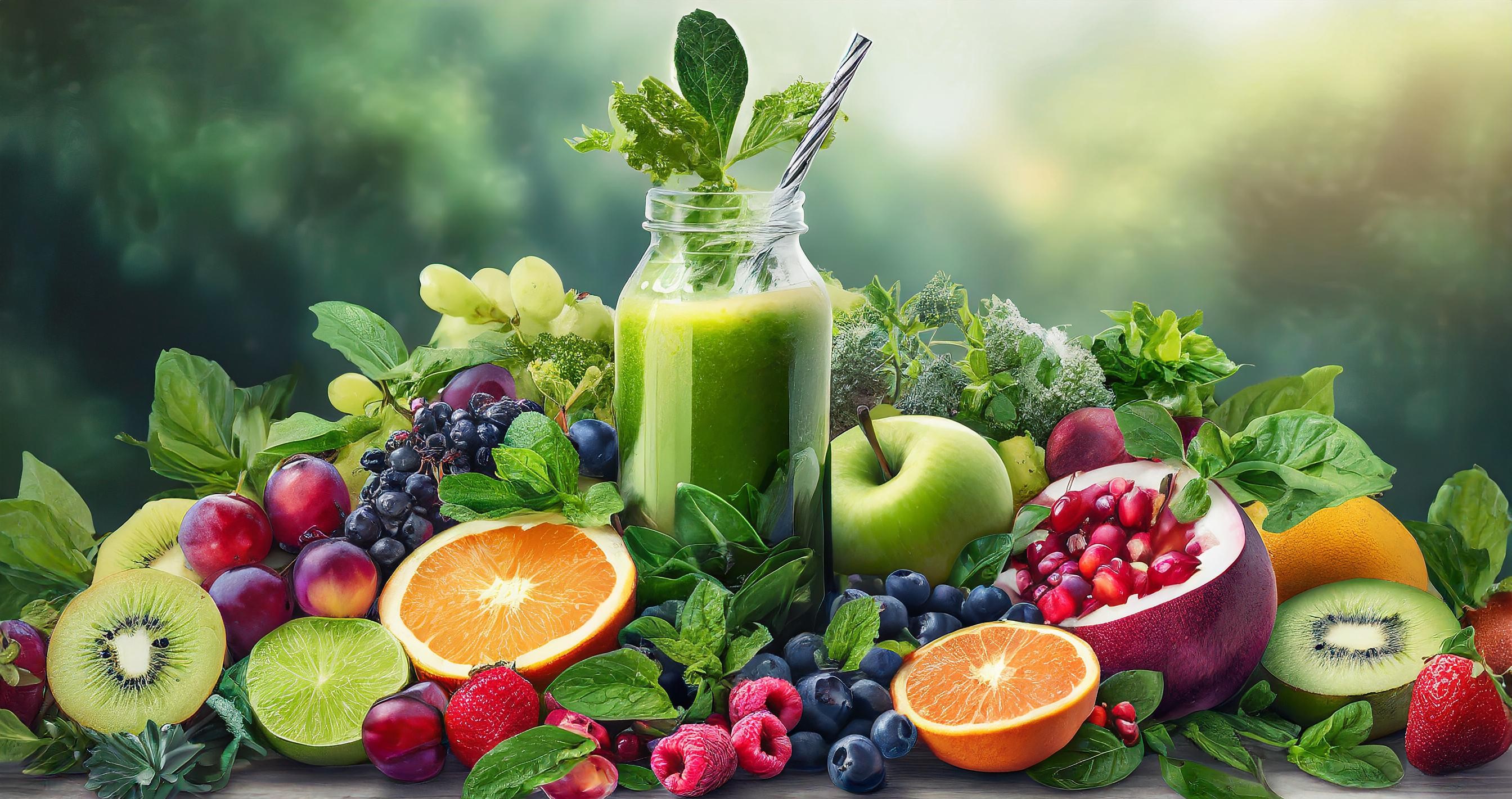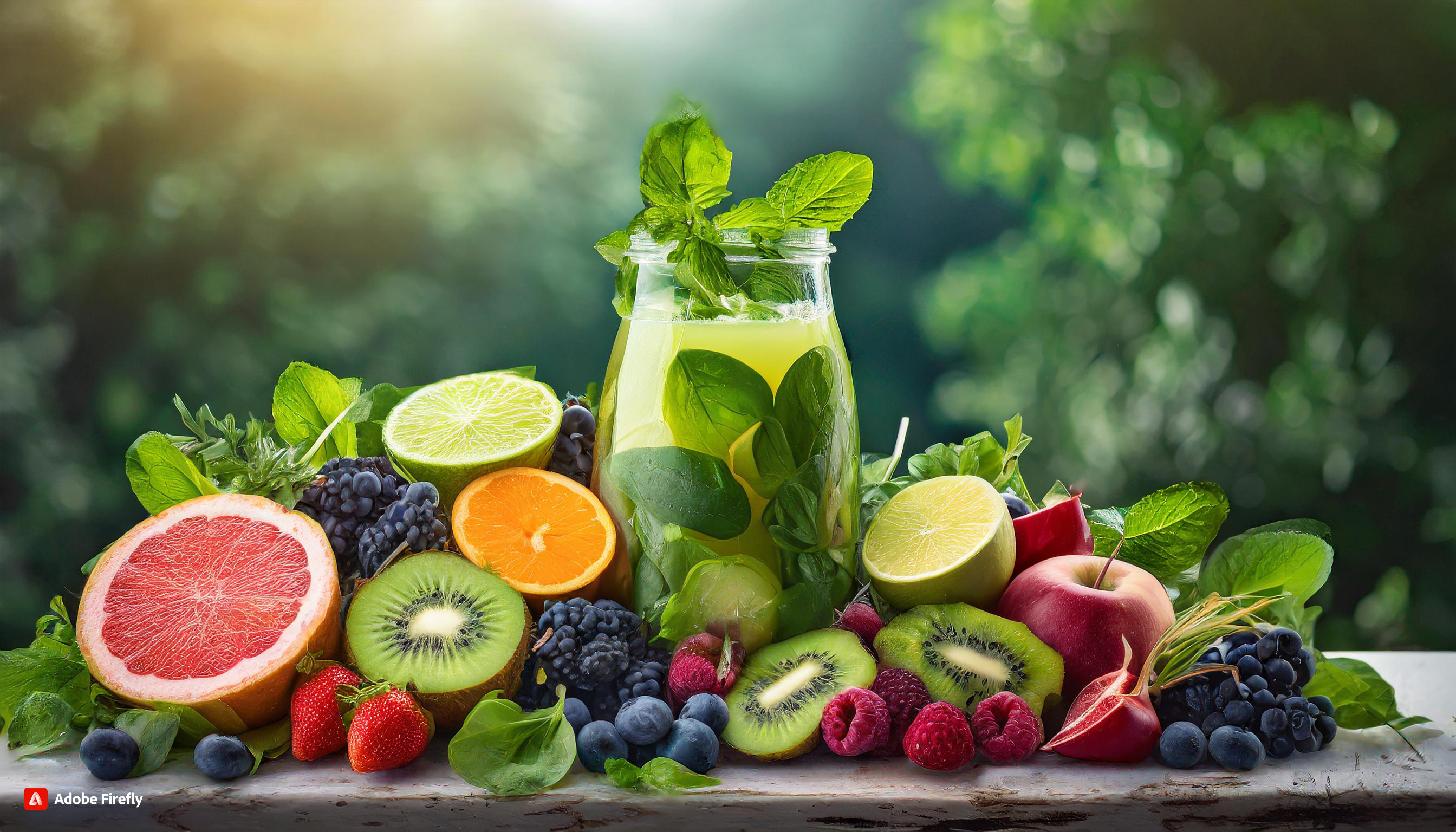A detox (detoxification) diet is a short-term dietary intervention aimed at eliminating toxic substances from the body through fasting, taking liquid, or consuming specific food or supplements.
Detox diets gained popularity in recent few years, as people have become more conscious about their diet, weight, and lifestyle modification, as the modern lifestyle causes exposure to pollutants, processed foods, and stress, which impact the body's natural detoxification process that leads to a buildup of toxins that may contribute to various health issues. Following a detox diet, people try to support their body's detoxification mechanisms, which mainly involve organs such as the liver, kidneys, and digestive tract.
History:
Detoxification is an ancient process followed by Roman, Greek, Native American, and Indian cultures too. They used some techniques like saunas, fasting, rebounding, dry brush, herbs, rest, water, meditation, exercise, and various bodywork.
Evidence:
There is no certain evidence to support the use of commercially popular detox diets for removing toxic substances from the body. However, there is some evidence that shows that there are some natural components that help in the process. For example chlorella ( a type of algae), malic acid (found in grapes and wine) citric acid( present in citrus fruits), succinic acid(apple and blueberries), citrus pectin (found in citrus peel and pulp) have some natural chelating properties, that may be useful for eliminating toxic metals from the body.
Celebrity image on body image dissatisfaction is high in women as compared to men and especially in the teenage population, they are very interested in detox cleansing, and fasting, some examples of detox diets promoted by celebrities are “The 7 days detox diet” by Gwyneth Paltrow, another is “ The Master Cleanse” by Beyonc, which influences the general population about detox diets.
Common detox diet:
Fasting detox diets promote fasting or severely restricting caloric intake for a specified period. Short-term fasting may offer certain health benefits, but prolonged fasting can lead to nutrient deficiencies, muscle loss, and other adverse effects.
Cleansing juice:
Despite having important vitamins and minerals, some juices lack fiber and protein, which are necessary for satiety and maintaining muscle mass. While certain individuals can profit from recognizing and staying away from food awareness these eating regimens can be excessively prohibitive and lead to nourishing lacks on the off chance that not adjusted. Eliminate Certain Foods:
 |
 |
Some detox diets recommend avoiding certain foods, such as gluten, dairy, and processed foods, because these foods encourage the body to store toxins. Identifying and avoiding foods can be helpful for some people, but if not properly balanced, these diets can be too restrictive and lead to nutritional deficiencies.
Benefits and Drawbacks of the Detox Diet
Benefits:
Increased Fruit and Vegetable Consumption:-
Many detox diets emphasize whole, plant-based foods, which can boost nutrient intake and support overall health.
Improved Hydration:
Consuming ample fluids, such as water and herbal teas, can help maintain hydration levels and support detoxification processes.
Mindful Eating:
Detox diets frequently encourage mindful eating practices like paying attention to hunger cues and savoring the flavors of food.
Drawbacks:
Nutrient Deficiencies:
Detox diets can lack essential nutrients such as protein, fat, and some vitamins and minerals, leading to deficiencies over time.
Sustainability:
Many detox abstains from food are not feasible in the long haul and can prompt weight gain while getting back to typical dietary patterns.
Potential Health Risks:
Excessive intake of supplements or prolonged fasting, for example, can lead to electrolyte imbalances and other health problems.
Read more on a healthy diet.
Conclusion:
 Despite the appealing idea of purifying the body through diet, detox diets should be approached with caution and skepticism. Maintainable lifestyle habits that promote overall well-being, such as eating a balanced diet, staying hydrated, doing active work regularly, managing stress, and getting enough sleep, should take precedence over exercise routines.
Despite the appealing idea of purifying the body through diet, detox diets should be approached with caution and skepticism. Maintainable lifestyle habits that promote overall well-being, such as eating a balanced diet, staying hydrated, doing active work regularly, managing stress, and getting enough sleep, should take precedence over exercise routines.
Before making any significant changes to your diet or lifestyle, consult a doctor or registered dietitian to make sure your choices meet your individual health needs and goals. Remember, true wellness means making conscious choices that promote long-term health and vitality, not quick fixes or fad diets.
